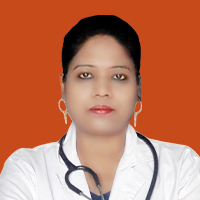

Successful Treatments
Clinics
Doctors
What is Seborrheic Dermatitis?
Seborrheic Dermatitis is a skin condition that generally occurs on the scalp, face along with other oily areas and causes red, flaky, and itchy patches. It is called dandruff when it affects the scalp and cradle cap in babies, and while this condition is not contagious or harmful, it can be uncomfortable and persistent.
Seborrheic Dermatitis has no known cause, but oily skin, stress, and cold or dry climates may cause or exacerbate symptoms of the disease. Some individuals are also more susceptible due to their genes, a history of skin disorders or any other health conditions. An overgrowth of yeast (Malassezia) on the skin may also cause more itching and visible flakes.
Seborrheic Dermatitis can be controlled with appropriate treatments. Good skincare, managing stress and avoiding triggers may help ease flare-ups of the condition. Even though Seborrheic Dermatitis is a chronic condition, proper treatment can help control the symptoms and improve skin health.
Common Causes of Seborrheic Dermatitis
Seborrheic Dermatitis is not just a normal skin irritation but is rather influenced by different factors that can trigger its signs and symptoms. Knowing these triggers can help you manage the problem, either when it appears on your scalp or elsewhere on your body.
The common causes of Seborrheic Dermatitis are:
Yeast Overgrowth: In the oils your skin produces, a yeast called Malassezia can thrive. An overgrowth of this particular yeast is generally harmless but can result in Seborrheic Dermatitis.
Excess Oil: If you have naturally oily skin, that extra oil may encourage yeast growth.
Hormonal Changes: Fluctuations in hormones can trigger more oil production in the skin.
Weather Conditions: Cold and dry weather may intensify symptoms, but hot, humid weather might reduce them.
Stress: High stress may flare up the symptoms of the condition or worsen existing signs.
Medical Conditions: Seborrheic Dermatitis is much more prevalent in individuals with certain health problems like Parkinson's disease, HIV or depression.
Some Medications: Some medicines, which include lithium and several interferons, might lead to Seborrheic Dermatitis as a complication.
Signs and Symptoms of Seborrheic Dermatitis
Seborrheic Dermatitis can appear differently depending on where it shows up on your body. It typically affects areas with plenty of oil glands and exhibits symptoms that may change with season and stress. Recognising these signs early may help manage the condition.
The common signs and symptoms of Seborrheic Dermatitis include:
Symptoms
Flaky Skin (Dandruff)
The most obvious sign is white or yellowish scales flaking off (typically on the scalp). These flakes also appear on the face, ears, chest and along skin folds.
Red Skin
Affected areas are red and inflamed, especially on lighter skin tones.
Itching
Seborrheic Dermatitis areas can be very itchy and scratching may make them even more red and flake more.
Greasy Patches
In patches of flakes and redness, the skin may look oily or greasy.
Skin Lesions
In chronic cases, skin lesions may crust over or ooze and increase the risk of infection if skin is broken.
Pinkish Plaques
The afflicted areas may have pinkish plaques of thick skin, especially on the face.
Eyelid Irritation (Blepharitis)
This condition causes red, swollen edges that may be itchy or burn, when it affects the eyelids.
Do you have any of the following symptoms?
- White or Yellowish Flakes
- Red, Inflamed Skin
- Itchy Skin
- Greasy, Oily Patches on the Skin
- Skin Lesions or Crusting
- Irritation in the Eyelids
- Thick Pinkish Plaques
- Increased Dandruff During Seasonal Changes or Stress
Jiva Ayunique™ Treatment Philosophy - A Holistic Approach to Seborrheic Dermatitis
Jiva Ayurveda offers holistic Ayurvedic treatment of Seborrheic Dermatitis using evidence-based Ayurveda. The treatment plans are customised to target the very root causes of the disease, and instead of just treating symptoms, they focus on holistic healing, balance and stability in totality.
Core Principles of the Jiva Ayunique™ Treatment Philosophy
HACCP certified Ayurvedic medicines: Scientifically-formulated mixtures that help restore balance in the body and maintain emotional stability.
Yoga, Meditation & Mindfulness: These calming practices promote your mental health and overall wellness.
Ayurvedic Therapies: Therapies like Panchakarma, Shirodhara, Abhyanga etc are included in treatment to purify the body and help balance emotional health.
Changes: Expert recommendations from Jiva certified doctors on modifying your diet and lifestyle to achieve better health.
Ayurvedic Medicines for Seborrheic Dermatitis
Ayurveda offers natural remedies for Seborrheic Dermatitis by balancing the body's doshas responsible for skin health. They include mild herbal treatments that soothe flakiness, redness, and itching. These are some effective Ayurvedic medicines that are suggested for Seborrheic Dermatitis:
Marichyadi Thailam: A strong herbal oil topically applied to the affected areas. It is soothing and reduces itching and flaking.
Amla (Indian Gooseberry): Amla is high in antioxidants and can be consumed in powdered or juice form. It increases immunity and provides the skin with nutrients to fight inflammation.
Giloy (Tinospora Cordifolia): Giloy helps detox the body and boost immunity. It could be taken as a juice or a powder to lessen systemic inflammation related to Seborrheic Dermatitis.
Neem: Neem is utilised internally as well as externally due to its antifungal and antibacterial qualities. Neem leaves can be boiled in water and used to wash the affected areas to relieve irritation and prevent infection.
Daru Harida (Tree Turmeric): It's an anti-inflammatory herb which may be put on topically to alleviate symptoms of Seborrheic Dermatitis.
Mulethi (Licorice): Mulethi manages redness and irritation. It can be taken as a tea or a paste to cool inflamed skin.
FAQs
Yes, stress could result in flare-ups of Seborrheic Dermatitis; thus, managing stress is an essential element of controlling the problem.
No, Seborrheic Dermatitis and psoriasis are distinct skin problems which might appear identical. Seborrheic Dermatitis usually affects oily areas whereas psoriasis can take place anywhere on the body.
While there's no direct evidence linking diet and Seborrheic Dermatitis, a balanced diet and sufficient hydration could promote good skin.
Washing your hair two times a week with a mixture of Ayurvedic herbs may help ease the symptoms of the disease.
Yes, babies outgrow cradle caps (infant Seborrheic Dermatitis) naturally without treatment after about 12 months but it is important to consult an Ayurvedic expert if you notice symptoms.
In certain individuals, mild exposure to the sun could reduce the symptoms of Seborrheic Dermatitis by inhibiting yeast growth on the skin.
Whereas dandruff causes moderate flaking of the scalp, Seborrheic Dermatitis results in considerable flaking, redness, and irritation of the skin on the head along with other body areas.
Yes, often putting on hats traps moisture and oil and can exacerbate Seborrheic Dermatitis symptoms on the scalp.
Yes, frequent exercise could decrease your stress and improve overall well being, possibly assisting with Seborrheic Dermatitis conditions.
Avoid harsh soaps and frequent shampooing with non-medicated products, control stress and adhere to a consistent skin care regimen using Ayurvedic herbs to avoid flare-ups.
Ayurveda provides remedies to manage and control the symptoms of Seborrheic Dermatitis by using a mixture of natural herbs and lifestyle changes.
Top Ayurveda Doctors
Our Happy Patients
Home Remedies
- रूखे और बेजान बालों का आयुर्वेदिक इलाज और मुफ़्त परामर्श
- पिगमेंटेशन का इलाज - घरेलू नुस्खे और मुफ़्त परामर्श
- फंगल इंफेक्शन का इलाज - घरेलू नुस्खे और मुफ़्त परामर्श
- चेहरे की टैनिंग हटाने के घरेलू उपाय - मुफ़्त परामर्श
- Scalp की खुजली का आयुर्वेदिक इलाज - मुफ़्त परामर्श
- क्या आपकी त्वचा बेजान हो गई है? ये आयुर्वेदिक नुस्खे देंगे नैचुरल ग्लो
- झड़ते बालों से परेशान? ये आयुर्वेदिक नुस्खे देंगे घने और मजबूत बाल
- पिंपल्स से छुटकारा पाना मुश्किल लग रहा है? आज़माएं ये असरदार घरेलू नुस्खे!
- क्या आप जानते हैं? इन देसी नुस्खों से डार्क सर्कल्स गायब हो सकते हैं
- डैंड्रफ का जड़ से इलाज – घर पर आजमाएं ये आसान नुस्खे
- Home Remedies for Open Pores
- Home Remedies for Glowing Skin
- Home Remedies For Itchy Scalp
- Home Remedies for Hair Fall
- Home Remedies for Dry Hair
- Home Remedies for Black Spots on Face
- Home Remedies for Hair Loss
- Home Remedies for Pigmentation
- Home Remedies for Face Tan
- Home Remedies for Fungal Infections
- Home Remedies for Dandruff
- Home Remedies for Pimples
- Home Remedies for Dark Circles
Related Disease
- Ayurvedic Treatment for Vitiligo
- Ayurvedic Treatment for Urticaria Hives
- Psoriasis
- Ayurvedic Treatment for Hair loss and Regrowth
- Ayurvedic Treatment for Skin allergy
- Ayurvedic Treatment For Dandruff
- Ayurvedic Treatment for ringworm
- Ayurvedic Treatment for Eczema
- Ayurvedic Treatment for Psoriasis
- Ayurvedic Treatment for Acanthosis Nigricans
- Ayurvedic Treatment for Alopecia Areata
- Ayurvedic Treatment for Chicken Pox
- Ayurvedic Treatment for Folliculitis
- Ayurvedic Treatment for Athlete’s Foot
- Ayurvedic Treatment for Pityriasis Rosea
- Ayurvedic Treatment for Pemphigus Vulgaris
- Ayurvedic Treatment for Phlebitis
- Ayurvedic Treatment for Angioedema
- Get Ayurvedic Treatment For Impetigo
- Lichen Planus Treatment in Ayurveda
- Ayurvedic Treatment for Carbuncle
- Ayurvedic Treatment for Cellulitis
- Ayurvedic Treatment for Shingles
- Ayurvedic Treatment for Seborrheic Dermatitis
- Ayurvedic Treatment for Atopic Dermatitis
- Ayurvedic Treatment for Dermatitis
- Get Ayurvedic Treatment for Lipoma
- Ayurvedic Treatment for Keloids
- Ayurvedic Treatment For Xanthelasma
- Ayurvedic Treatment for Scabis
- Ayurvedic Treatment For Warts
- Ayurvedic Treatment For Dark Circles
- Ayurvedic Treatment For Hyperpigmentation
- Ayurvedic Treatment for Glowing Skin
- Ayurvedic Treatment For Fungal Infection
- Get Ayurvedic Treatment for Rosacea
- Get Ayurvedic Treatment for Contact Dermatitis
- Ayurvedic Treatment for Acne
- Ayurvedic Treatment for Leprosy
Latest Blogs
- क्या वैरिकोज़ वेन्स और DVT एक-दूसरे से जुड़े हैं? आयुर्वेद बताता है असली फर्क
- क्या त्वचा पर कुछ हिस्सों का अचानक रंग हल्का होने लगना Hypopigmentation है या Vitiligo? आयुर्वेदिक भेद समझें
- क्या धब्बों के आसपास खुजली या हल्की जलन Vitiligo flare का संकेत है? आयुर्वेदिक दृष्टि से समझें
- क्या रसायनिक उत्पाद, रंग-बिरंगे क्रीम या फ्रेगरेंस त्वचा पर दाग बढ़ा सकते हैं? Vitiligo में त्वचा-संवेदनशीलता आयुर्वेद से जानें
- क्या परिवार में पहले से Vitiligo होने पर बच्चों में इसका खतरा बढ़ जाता है? आयुर्वेदिक कारण समझें
- क्या तनाव बढ़ते ही सफ़ेद दाग फैलने लगते हैं? Vitiligo में मन-त्वचा संबंध आयुर्वेद की नज़र से जानें
- क्या बार-बार पेट संबंधी समस्याएँ—गैस, अपच, कब्ज़—Vitiligo को ट्रिगर करती हैं? आयुर्वेदिक व्याख्या देखें
- क्या धूप में जाने पर सफ़ेद दाग और ज़्यादा साफ़ दिखने लगते हैं? Vitiligo को आयुर्वेद की नज़र से जानें
- क्या त्वचा पर छोटे-छोटे सफ़ेद धब्बे उभरना Vitiligo का शुरुआती संकेत है? आयुर्वेदिक दृष्टि से समझें
- क्या सोरायसिस में त्वचा के साथ-साथ जोड़ों में दर्द (Psoriatic Arthritis) भी शुरू हो सकता है? आयुर्वेदिक दृष्टि से संकेत देखें
- क्या बार-बार स्टेरॉइड क्रीम लगाए बिना राहत नहीं मिलती? Psoriasis में मूल कारण कैसे समझता है आयुर्वेद—जानें
- क्या गर्मी और मसालेदार भोजन आपके Psoriasis को तुरंत flare-up करते हैं? आयुर्वेदिक कारण जानें
- क्या बार-बार त्वचा को मॉइस्चराइज़ करने पर भी सूखापन और जलन कम नहीं होती? Psoriasis को आयुर्वेद की नज़र से समझें
- क्या घुटनों, कोहनियों और पीठ पर मोटे patches बनना Psoriasis का विशिष्ट लक्षण है? आयुर्वेदिक व्याख्या जानें
- क्या बार-बार एलर्जी जैसी खुजली और जलन Psoriasis की ओर इशारा कर सकती है? आयुर्वेदिक दृष्टिकोण से समझें
- क्या सिर की त्वचा पर लगातार पपड़ी गिरना Dandruff नहीं—Scalp Psoriasis का लक्षण हो सकता है? आयुर्वेदिक संकेत देखें
- क्या तनाव बढ़ते ही त्वचा पर अचानक flare-up होना Psoriasis का क्लासिक पैटर्न है? आयुर्वेदिक कारण समझें
- क्या ठंड बढ़ते ही त्वचा फटना, लाल धब्बे और खुजली Psoriasis को ट्रिगर करते हैं? आयुर्वेद की नज़र से जानें
- क्या त्वचा पर मोटी, सफ़ेद पपड़ी बनना Psoriasis का शुरुआती संकेत है? आयुर्वेदिक दृष्टि से समझें
- क्या सिर्फ फिज़्योथेरपी से फ्रोज़न शोल्डर ठीक हो सकता है? आयुर्वेद बताता है किस चरण में क्या असरदार है
Ayurvedic Doctor In Top Cities
- Ayurvedic Doctors in Bangalore
- Ayurvedic Doctors in Pune
- Ayurvedic Doctors in Delhi
- Ayurvedic Doctors in Hyderabad
- Ayurvedic Doctors in Indore
- Ayurvedic Doctors in Mumbai
- Ayurvedic Doctors in Lucknow
- Ayurvedic Doctors in Kolkata
- Ayurvedic Doctors in Patna
- Ayurvedic Doctors in Vadodara
- Ayurvedic Doctors in Ahmedabad
- Ayurvedic Doctors in Chandigarh
- Ayurvedic Doctors in Gurugaon
- Ayurvedic Doctors in Jaipur
- Ayurvedic Doctors in Kanpur
- Ayurvedic Doctors in Noida
- Ayurvedic Doctors in Ranchi
- Ayurvedic Doctors in Bhopal
- Ayurvedic Doctors in Ludhiana
- Ayurvedic Doctors in Dehradun









































